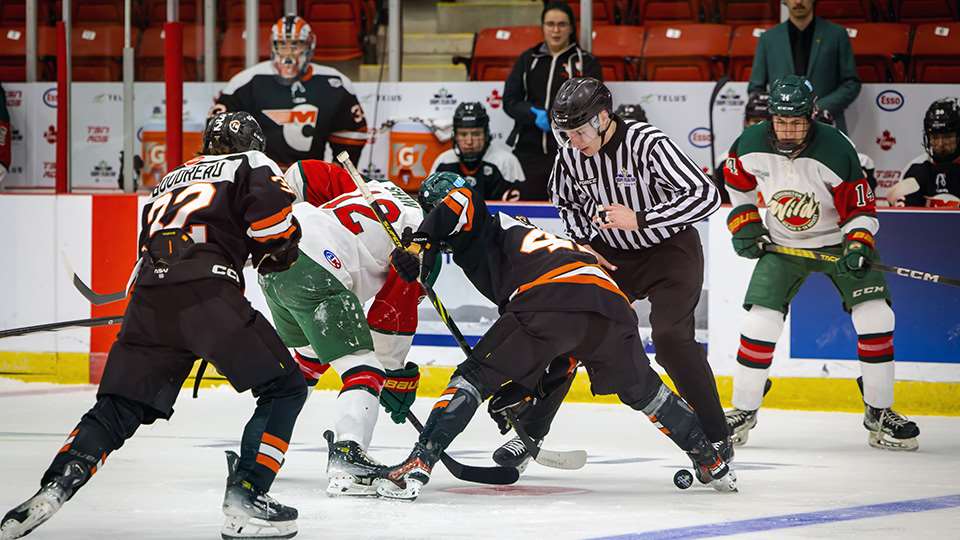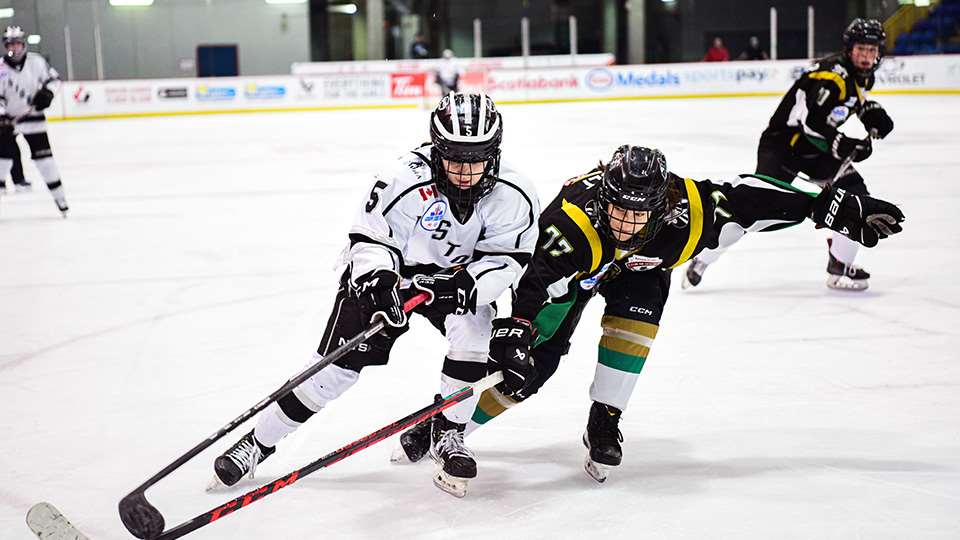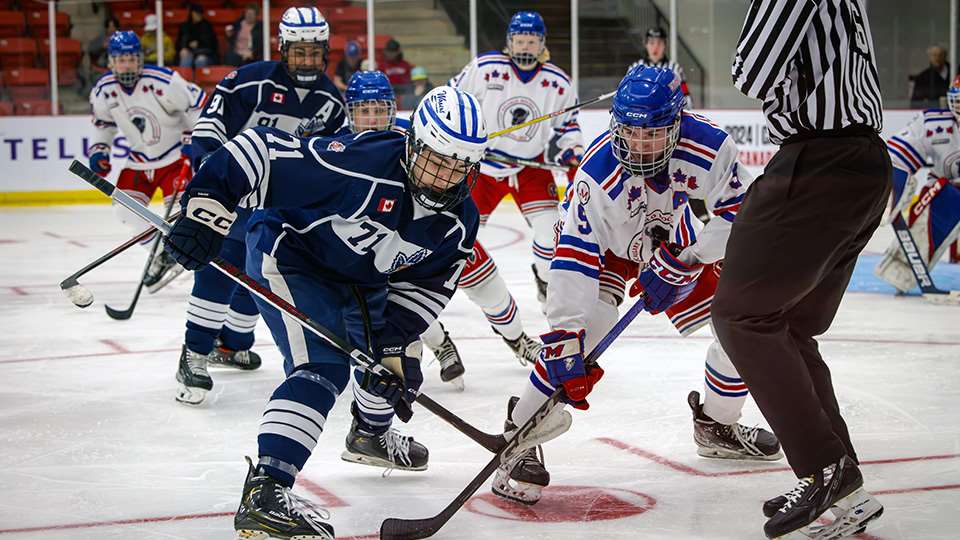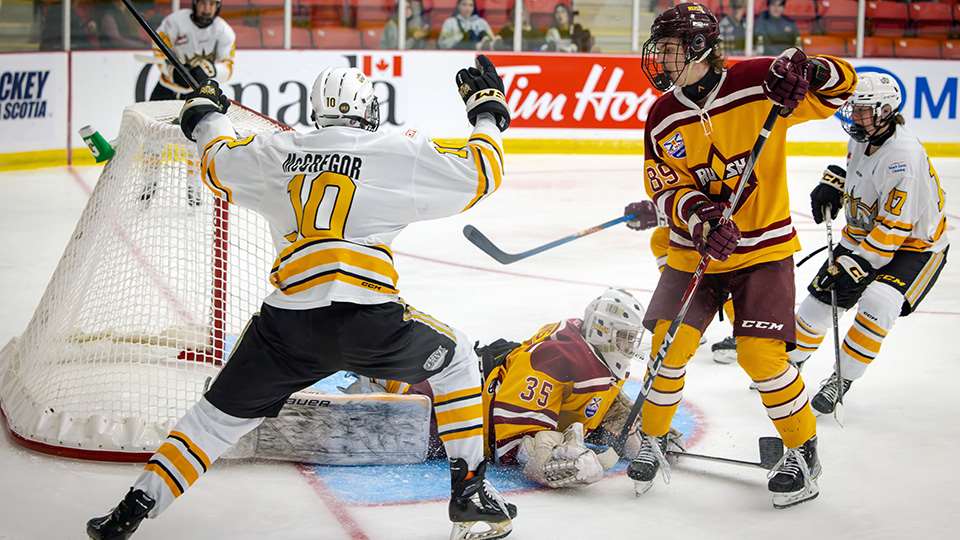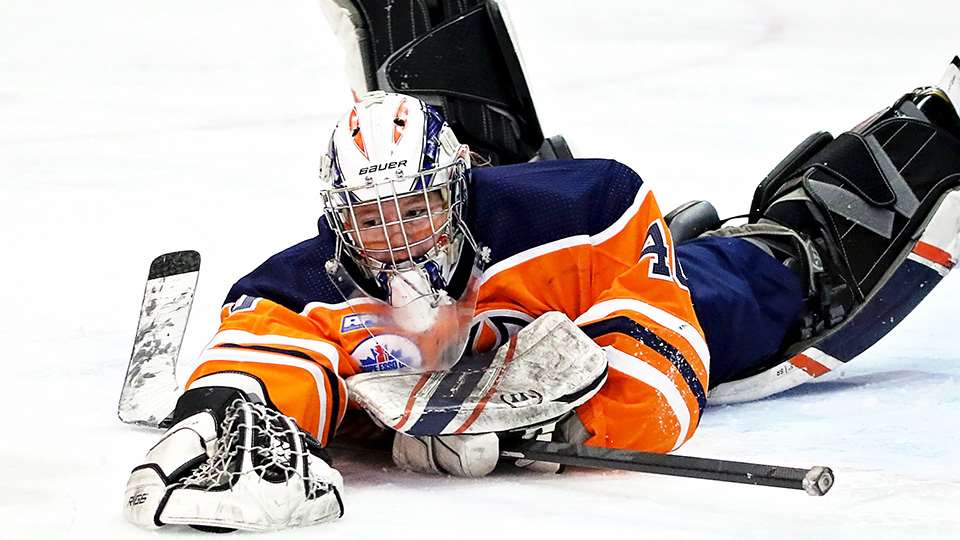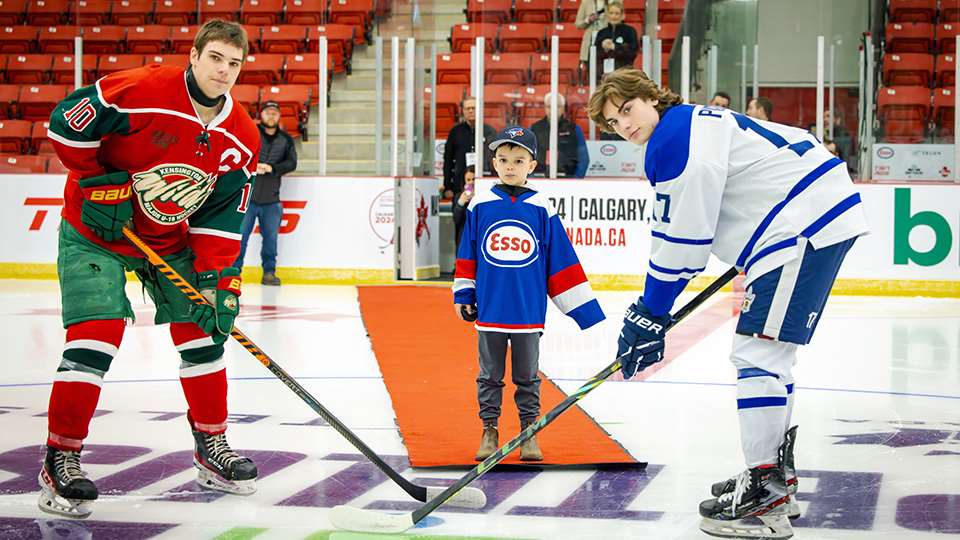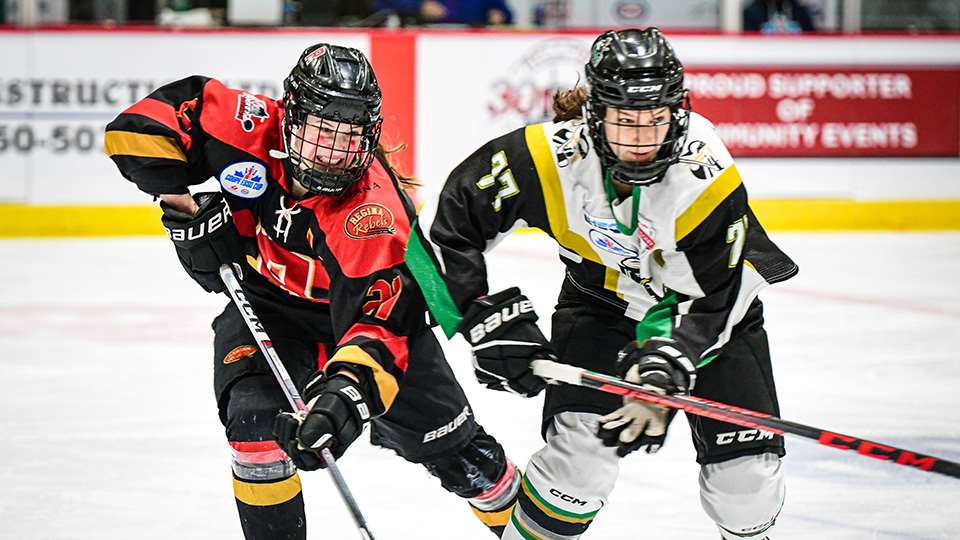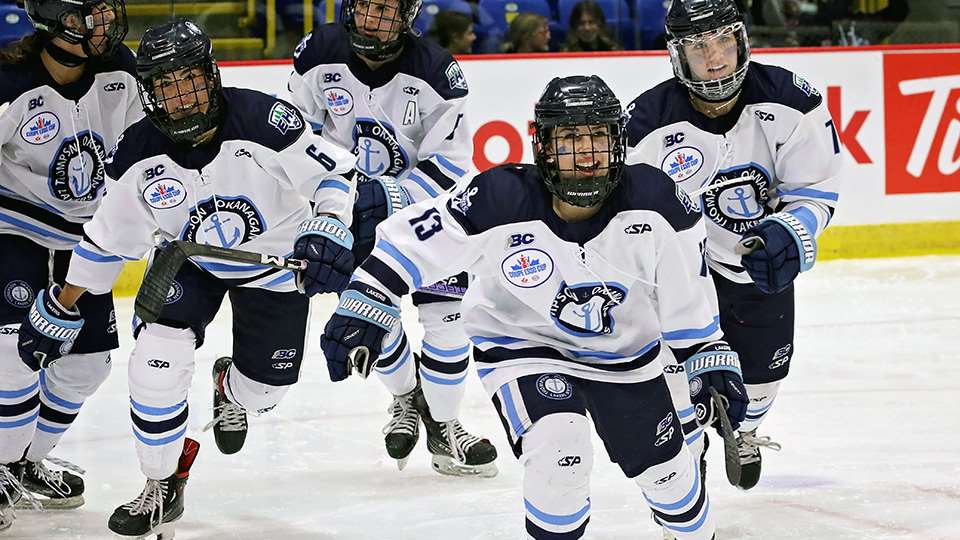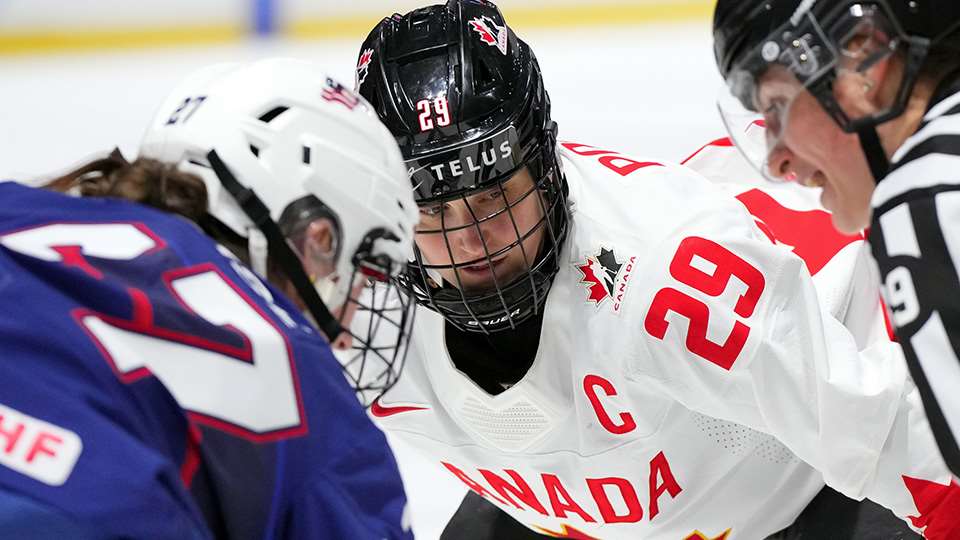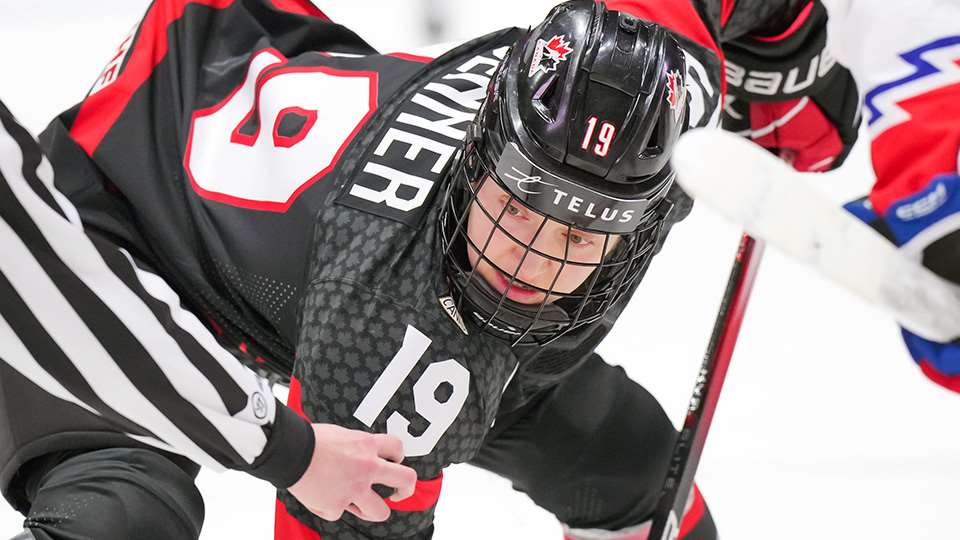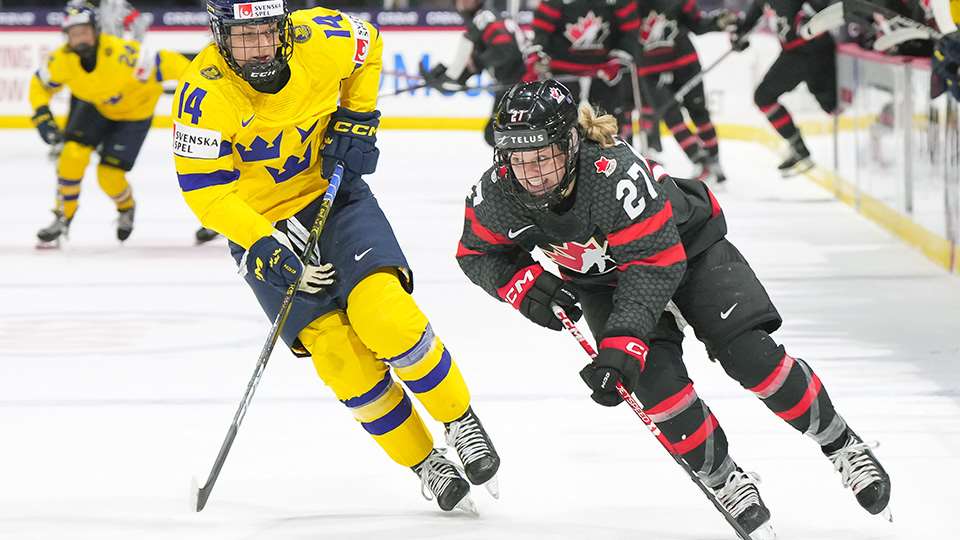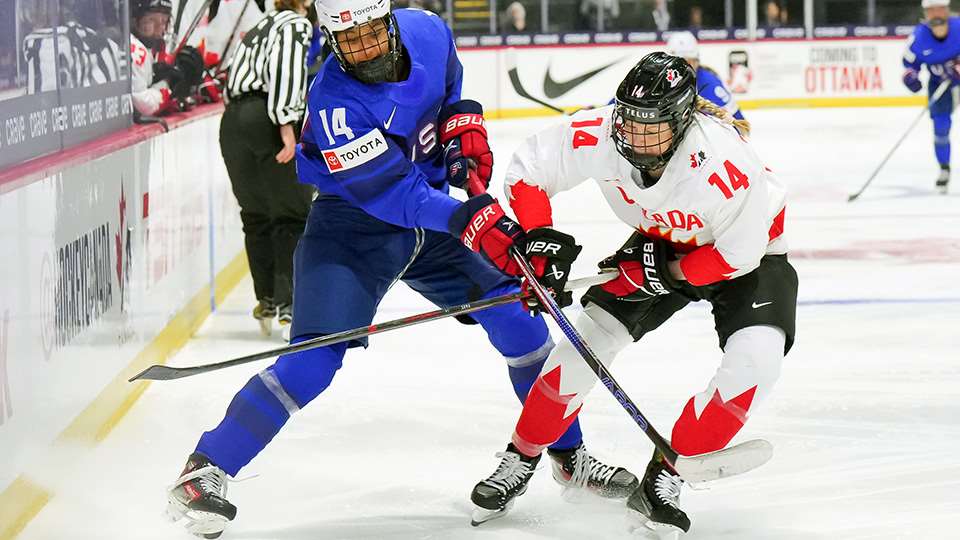
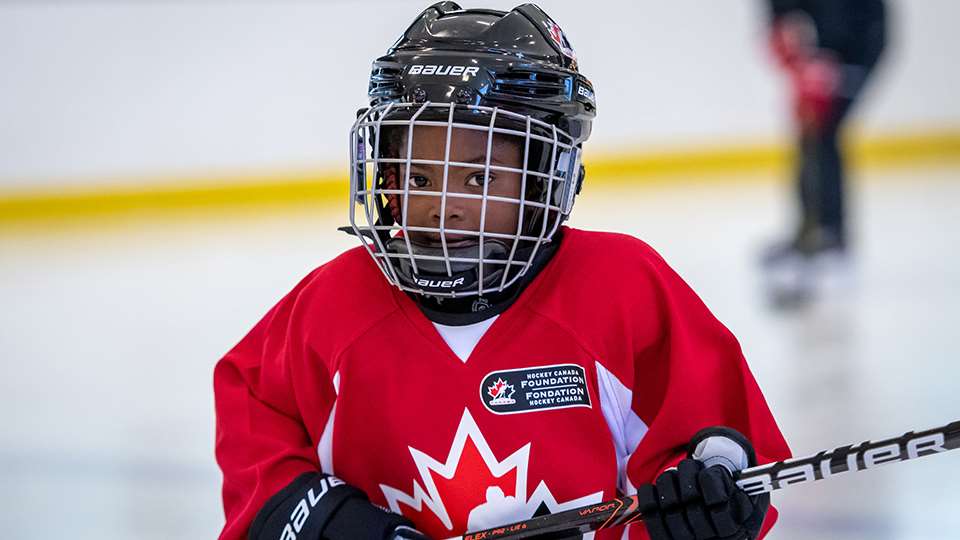
Ending racial discrimination in our game
The International Day for the Elimination of Racial Discrimination is an opportunity for the hockey community to reflect and do its part to ensure the game is safe for everyone

Today, March 21, is the United Nations' International Day for the Elimination of Racial Discrimination, a significant day that aims to raise awareness about the injustices, biases and prejudices stemming from racial discrimination, pervasive across various facets of life, including sports.
From a hockey perspective, today is an opportunity for members of the Hockey Canada family to reflect on the fact that while some progress has been made, the BIPOC (Black, Indigenous and people of colour) community continues to face racism and discrimination in hockey.
It is also a time for everyone involved in the game – players, coaches, officials, administrators, volunteers, fans and parents – to re-commit and advance their efforts to combat and eliminate all forms of racial discrimination and systemic racism to ensure a safe, more inclusive and welcoming hockey environment for everyone.
To reflect on the progress that has been made and what needs to be done moving forward, Hockey Canada spoke to Bob Dawson, the first Black player in the Atlantic university hockey with Saint Mary’s University. We also sat down with Irfan Chaudhry, the organization’s vice-president of diversity and inclusion, about the steps Hockey Canada has taken to address racial discrimination in our game.
Q: Why is it crucial to address, and eliminate all forms of racial discrimination?
BD: The failure for stakeholders in the game to address and eliminate all forms of racial discrimination can, among other things, lead to or result in:
- Unhealthy or toxic hockey environments in which increasing tensions affect the players, coaches, parents and team officials. Such situations, if not addressed and resolved effectively, could tarnish a team's or league’s image.
- Increased player suspensions and or fines, possible grievances, human rights complaints or lawsuits which might reflect negatively on a hockey association or league.
- Difficulties in local hockey associations attracting, recruiting and retaining members of racialized groups, as players, coaches, board or committee members, and volunteers.
Q: What impact does racial discrimination have on the mental health and well-being of players from minority backgrounds in hockey? BD: The impact can have serious consequences. It can and does, in some cases, lead to low self-esteem, fear, anxiety, frustration and even depression. It can shatter their confidence and self-worth. Furthermore, it can affect the players’ mind-set and morale, and ultimately undermine their on-ice performance and hockey development.
Q: What is Hockey Canada doing to ensure hockey environments are safe, inclusive and welcoming for all participants? IC: Hockey Canada has established a senior leadership position within the organization to focus on Equity, Diversity, and Inclusion-related initiatives. Anti-racism work falls within this portfolio. Hockey Canada is also a full signatory to Abuse-Free Sport, the national independent program to prevent and address maltreatment in sport in Canada. All complaints of abuse, discrimination and harassment at the national level will go directly to the Office of the Sport Integrity Commissioner (OSIC). By being a signatory, Hockey Canada commits to a zero-tolerance approach to racial discrimination in the sport. This also provides clear protocols with dealing with racial discrimination.
Q: What steps are Hockey Canada taking to hold players, coaches and fans accountable for discriminatory behaviour?
IC: Hockey Canada tracks and makes publicly available infractions related to Rule 11.4 (Maltreatment). As part of our ongoing commitment to transparency, Hockey Canada releases this data – as reported by Members – on an annual basis. According to Rule 11.4, discrimination strictly relates to any player or team official who engages in verbal taunts, insults or intimidation based on discriminatory grounds. The current report can be found here. By tracking racial, as well as all other forms of discrimination, Hockey Canada will be able to assess where further work is needed to ensure anti-racism initiatives are achieving the required goals.
Q: What steps can hockey organizations take to hold players, coaches and fans accountable? BD: They can, among others actions, recognize and address internal conflicts and discriminatory behaviour in an open, fair and timely manner. They can also recognize and challenge inappropriate behaviours, racist attitudes or discriminatory practices that may alienate, demean or exclude members of racialized groups; regularly review and modify policies and guidelines, including codes of conduct or behaviour for players, coaches, referees, parents and spectators to address issues of racism and discrimination; introduce harsher penalties or suspensions for players and coaches involved in acts of racism and discrimination; and speak out publicly in a timely manner on incidents of racism by coaches, players and spectators.
Q: What measures can be taken to ensure hockey arenas and facilities are safe and welcoming spaces for everyone, regardless of race or ethnicity? BD: Measures can include, but are not limited to, ensuring the arenas and facilities (dressing rooms, washrooms, team benches, etc.) are accessible. It also includes working with local parks and recreation departments across the country to post notices in arenas prohibiting racist or discriminatory behaviour on the ice and in the stands during hockey games and publicize on their websites a Code of Conduct for hockey players. Arenas can also place or install anti-racism messages or slogans, such as Play the Game, Respect the Player; Racism - It Stops with Me!; Love Hockey, Hate Racism; and Hockey Fights Racism, Join the Fight! in their lobbies, on their rink boards and in dressing room areas.
Q: What role do coaches and team officials play in fostering a culture of acceptance and respect? BD: Both play an important leadership role. Coaches can help create a positive environment and reduce negative or poor behaviour by being positive role models, encouraging respect and fair play, upholding the club's Code of Conduct, and respecting players, officials, parents and volunteers. As for team officials, they can be agents of change and help shape the organizational culture, ensure their organization is reflective of the diverse communities they serve, use language that is respectful, inclusive and free of stereotypes, ensure the conduct and behaviour of members and non-members alike are respectful and appropriate, and reward and recognize positive behaviours and attitudes that contribute to valuing diversity.
Q: What educational resources and training programs does Hockey Canada make available to parents, coaches and Members to address racial discrimination effectively? IC: Member organizations are starting to build capacity within the EDI space, as many are establishing committees and/or dedicated paid positions related to EDI initiatives. A key focus of this work will be to ensure Member organizations are informed on addressing incidents of racial discrimination and ensure there is compliance with anti-racism policies and the promotion of anti-racism initiatives.
Q: What will happen to the game of hockey if we collectively fail to address racial discrimination? BD: It's likely that more BIPOC players will leave the game and take up other sports. Members of racialized groups new to Canada in being aware of the existing hockey culture could decide to play other sports. This combined with fluctuating hockey registrations could put hockey at risk.
Q: What does Hockey Canada need to be doing more of in order to address racial discrimination effectively?
IC: This work is ongoing and will continue. Hockey Canada is committed to ensuring everyone who plays hockey has the right to play in a safe, welcoming and non-discriminatory environment.
For more information: |
- <
- >

















